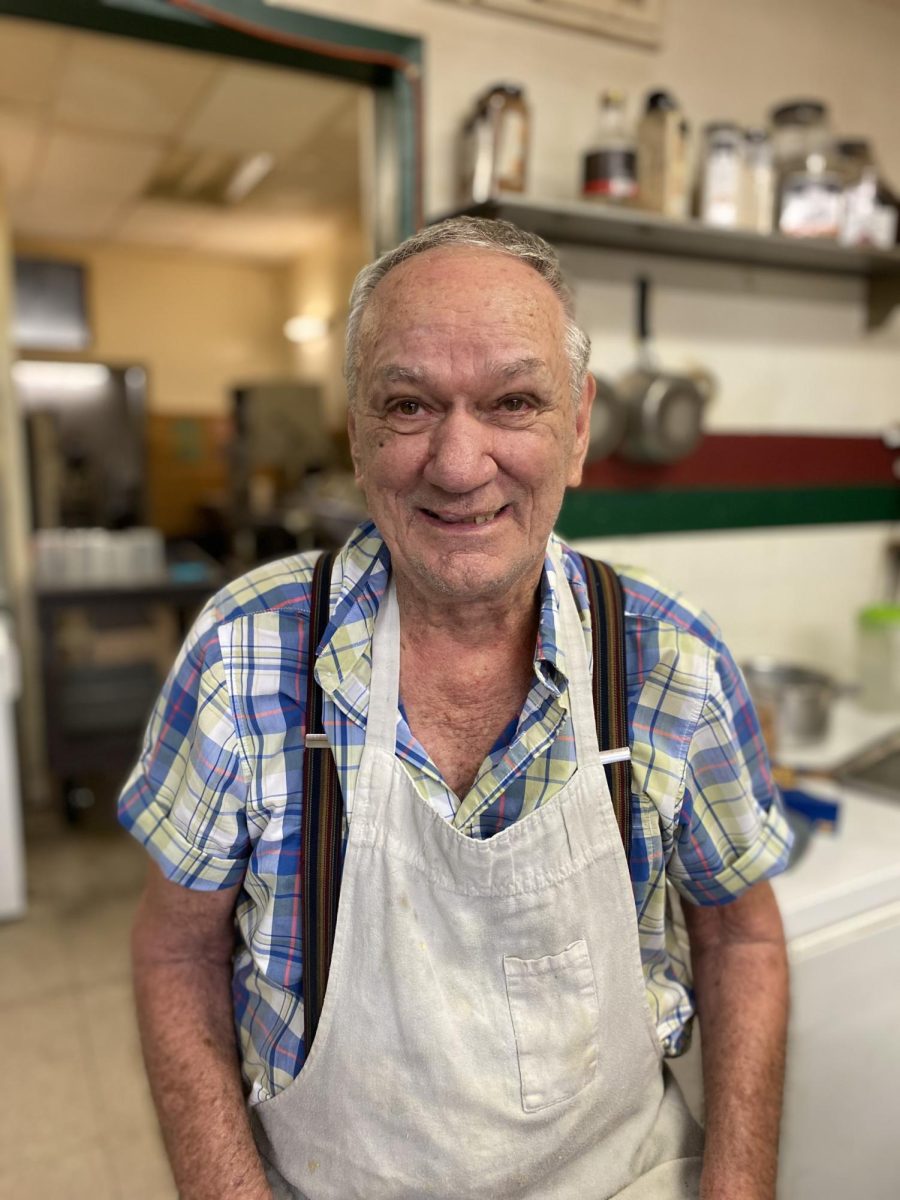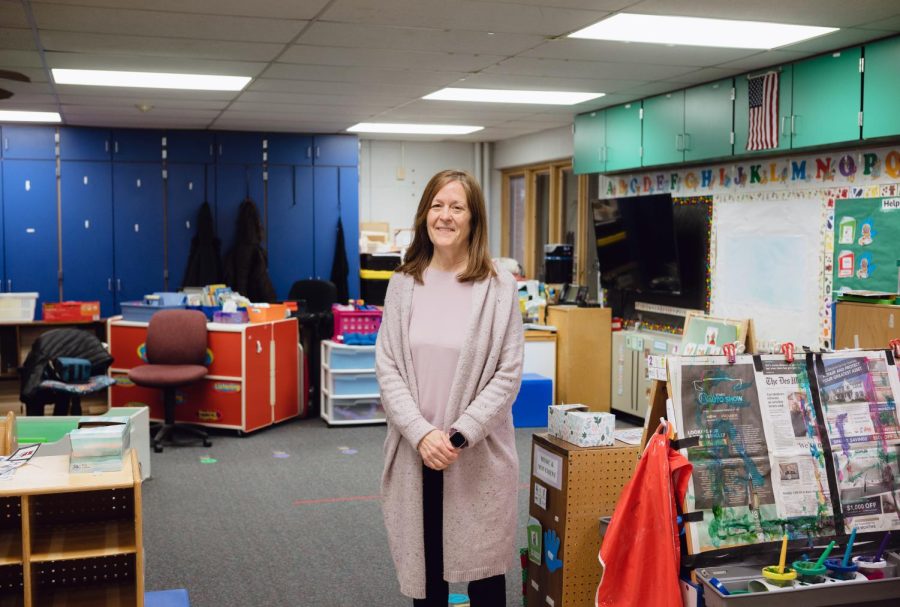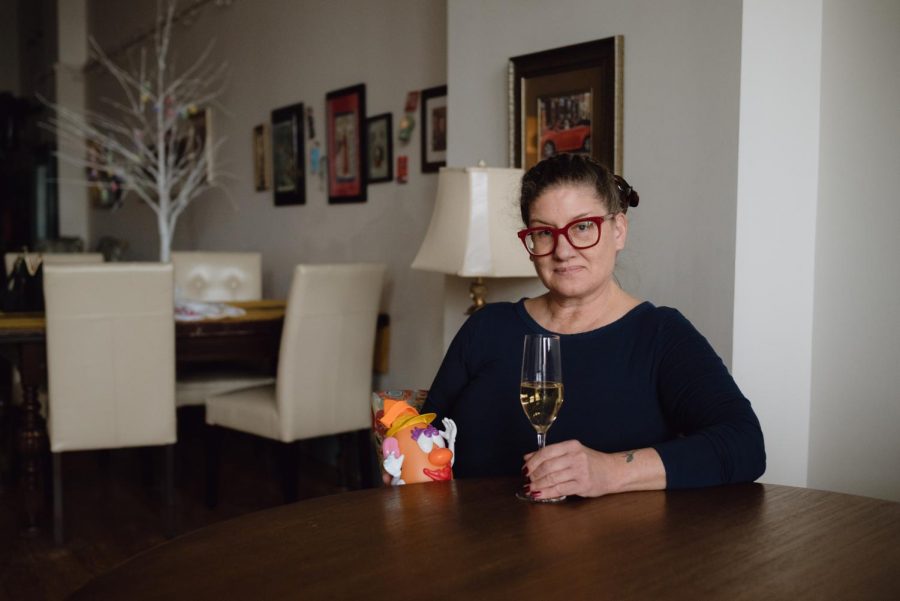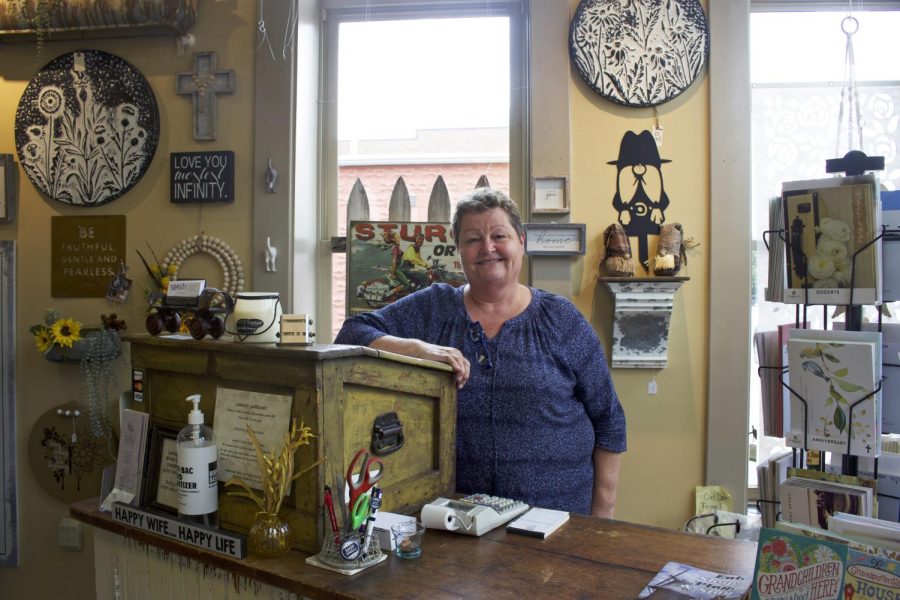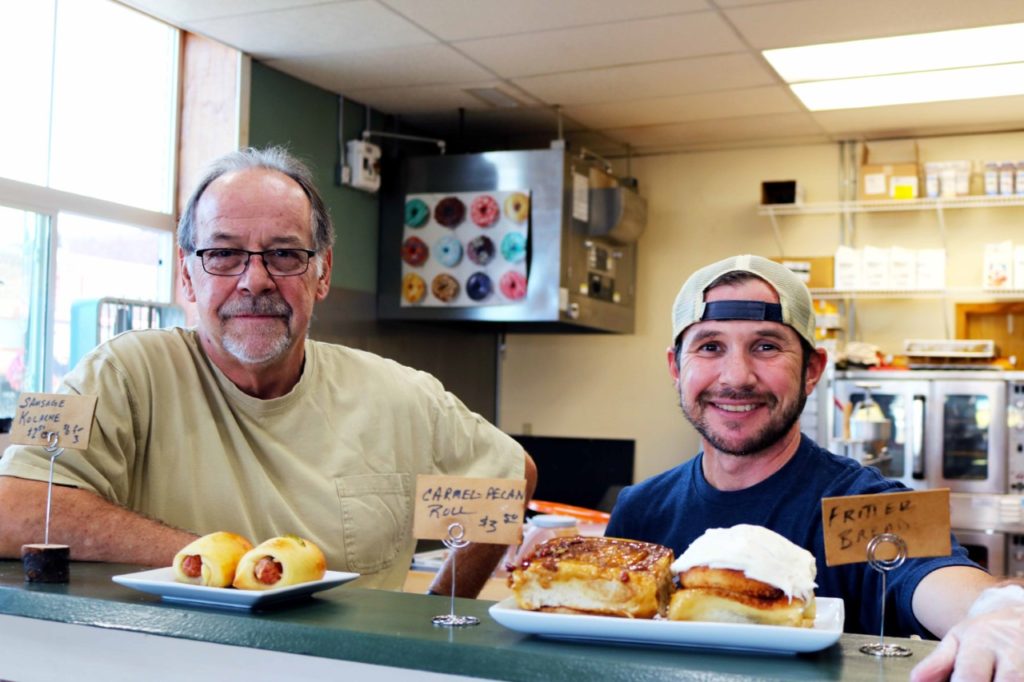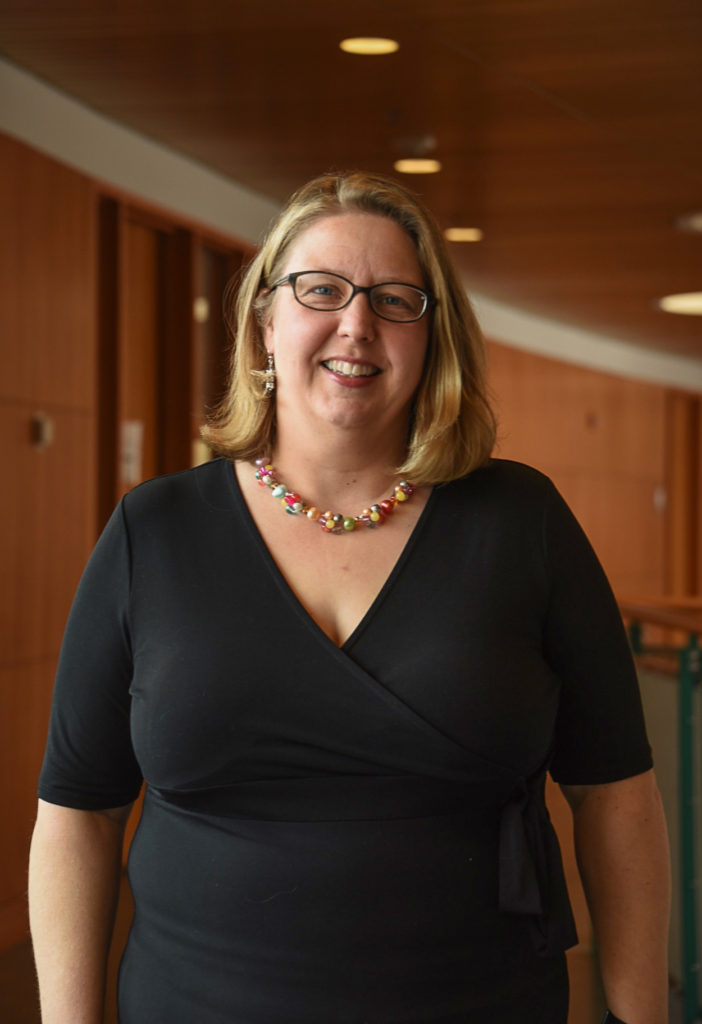Everyone in the Grinnell community knows Roger Bortell.
“I can drive around, go block by block, and point out all the people I know,” he says, with an unabashed smile.
The 52-year-old is a lifelong resident of Grinnell, a cancer survivor, and the man who saved and revitalized Food Recovery Network: a College-started chapter of a nation-wide volunteer organization (FRN). The Grinnell chapter alone donates more than 10,000 pounds of excess food per year from the College dining hall and local venders to the greater community.
It was by pure accident — some may say fate — that Roger crossed paths with the students who were starting FRN back in 2014 at the First Presbyterian Church. At that time, the club was struggling in terms of finding efficient and effective distribution methods and ways to publicize FRN to community members.
“I’ve always looked for ways I could help others,” Roger began. “Dylan [Bondy ‘16] approached our church, and eventually got connected with me. I sat down with the students and listened as they explained what they were doing and what their goals were for FRN. I told them, ‘This is what you’re doing wrong, that’s what you’re doing wrong, but this is what we can do to make it better.’”
Soon, FRN was flourishing — in large part due to Roger, a natural fit for the network, as he had spent his entire adult life both working in the food service industry and volunteering his time through church community service programs.
“I have management skills,” Bortell said. “I had a job as assistant manager at Taco Johns before they even finished putting the walls up.”
These skills quickly translated to the nonprofit realm. Roger implemented numerous changes to FRN’s distribution methods. From making decisions on how to transport the food, contacting other community venues such as local restaurants, hospitals and grocery stores, extending distribution to Saturdays and even implementing increased hygiene protocol, Roger has been the catalyst for the impact FRN has had on 150+ community members in need every week.
“It’s hard to spread news by word of mouth, unless you know everybody — which I pretty much do,” said Roger, with a jovial grin.
Soon, a huge increase of people attended distributions, and more local vendors — including Hy-Vee, Pizza Hut and Taco Bell — were donating massive amounts of food in addition to the dining hall.
But what is most amazing, and inspiring, about Roger is his tenacity to continue advocating for others in the face of personal struggle.
Shortly after FRN took off, Roger was diagnosed with lymphoma.
“The commitment I put into this, … I was on my deathbed, the cancer had grown so much, up my organs. … I had my lung drained twice while still getting food passed out. I got chemo every few months, then I’d take maybe the first week or two off, then come back and do the third week. I’d make sure to get the food passed out each Thursday, Friday and Saturday so that people would still know that they could get food,” Bortell said, with a calm, humble honesty. “This town is my hometown.”
Working with FRN kept Roger in a positive place throughout his treatment.
“Food Recovery Network played a large role in my own recovery from cancer,” he stressed multiple times.
Roger has also overcome battles with alcoholism and drugs. Years before starting at FRN or even regularly attending church, Roger was put on parole for minor charges When he broke parole upon illegal drug use, he was sentenced to 23 months in prison.
But instead of just waiting out his time, Roger became the definition of proactive, using his formative experience in prison as a source of education and faith.
“Instead of getting mad about it, I actually sat down and studied the Bible. I studied for 6-8 hour days. You can imagine my stack of 38 bible books,” he said.
“I took the time to grow and mature and to understand what I wanted out of life, not just what life was handing me. Life had handed me quite a few bad apples, and I didn’t run with it very well until then. Being disabled for 25 years, I have not laid down and given up yet.”
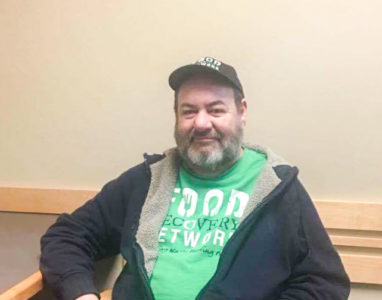
Roger Bortell takes a break between distributions at the Food Recovery Network.



















































